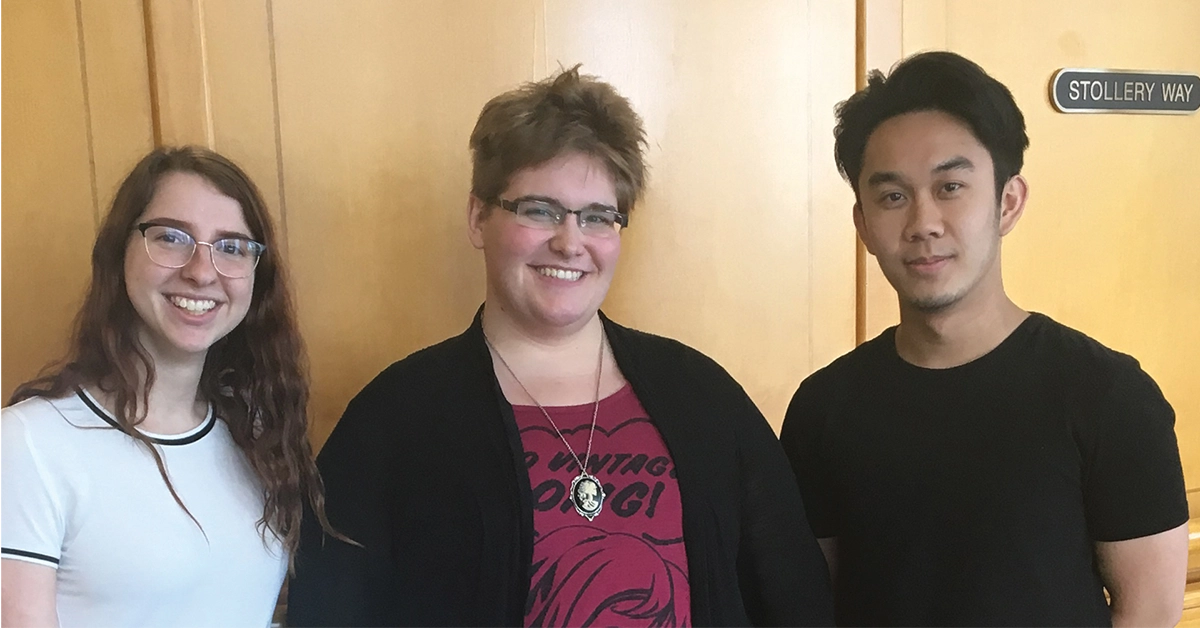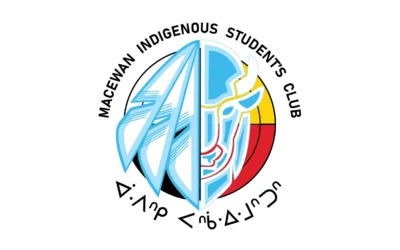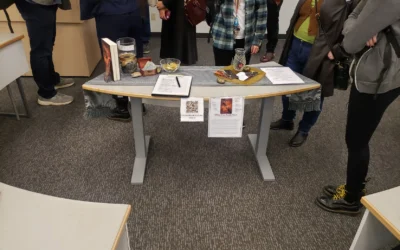American Sign Language (ASL) serves as the predominant language used in the deaf community in North America. Within Canada, the two main sign languages are ASL and Langue des signes québécoise (LSQ), used in Quebec. ASL in Canada also differs regionally.
With a few tweaks to their teaching methods, the MacEwan ASL club has already received a lot of positive responses. The club aims to open up communication between MacEwan University students, while teaching deaf culture and etiquette. I sat down with the executive team, Dylanna Fisher (president), Ada Szulski (vice president), and Benedict Zenarosa (event coordinator) to find out more about the club.
How did the asl club come about?
DF: So, our club started interestingly, as a fluke. Somebody posted on Facebook asking if there was an ASL class or an ASL club. Basically, somewhere students can learn ASL without going outside the university. A lot of people followed the post just to see if there was any information on it. Someone suggested to get a group together and find videos online and practise the language informally. I decided to start the Facebook group, and indirectly, unintentionally became the president.
It was a learning experience to get the group together. There was a lot of paperwork. An obscene amount of paperwork involved. We officially began last winter semester (2018) and are starting again with a few changes. Mainly, we have a teacher coming in.
Do you know asl yourself?
DF: We are learning ourselves. We have a bit of a basis because of last semester but before that we didn’t have any knowledge beyond bits of YouTube videos here and there. Last semester we learned how to introduce ourselves, sign our names, and the alphabet.
Why did you decide to hire an instructor?
DF: We learnt the material on a week by week basis. We received a complaint that we (as a club) were taking ASL as a novelty. We didn’t want it to appear that way. We wanted to bridge the communication gap. So, this year we decided to hire a professional to teach us the language.
AS: A couple of us took an ASL course with the Canadian Hard of Hearing Association and we learnt that there were regional differences with some of the signs.
Why is asl important to you?
DF: For me I wanted to be able to interview people directly, without needing an interpreter that might not be as direct as I would be.
AS: I work in retail and I want to be able to communicate with the customers, really. The world is very tailored to hearing people and we have a responsibility to at least make an effort in order to make communication between everyone easier. Even just basic signing makes it easier.
BZ: I had a customer come in and just me being able to interact with him made him so happy. It really inspired me to learn the language more.
Why is it important that a club like this exists?
DF: Because there are a lot of people who are hard of hearing or deaf, especially at MacEwan. Personally, I feel bad because I don’t know how to talk to them. It’s not always easy to communicate with people and to be in that position … I don’t know how that would feel. If I can help people feel less isolated, then I will.
AS: ASL is a very expensive language and so this club is free for anyone interested in it.
What do you enjoy about the asl club?
DF: The games. We have a lot of games and activities and we practise ASL through that.
Edited for length and clarity. Photography by Ishita Verma.





hello, just wondering if the instructor is deaf, Deaf, or hard of hearing?